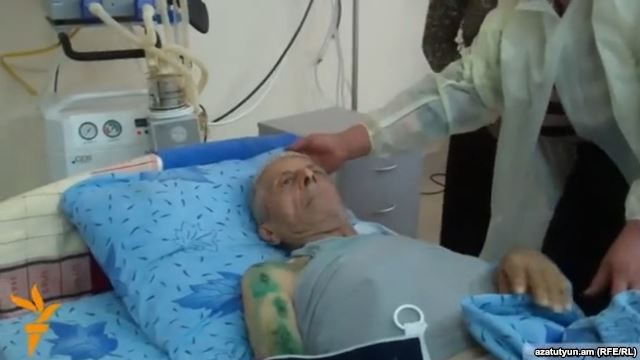YEEVAN — In what amounted to a vote of confidence, the National Assembly approved on Thursday the new Armenian government’s comprehensive policy program which calls for fresh parliamentary elections, tough anti-corruption measures and sweeping reforms.
The 26-page program was backed by 62 votes to 39 following a debate during which Prime Minister Nikol Pashinian was strongly criticized by deputies representing the former ruling Republican Party of Armenia (HHK).
The HHK, which is headed by former President and Prime Minister Serzh Sarkisian, still has the largest parliamentary faction despite having narrowly lost its absolute majority in the 105-seat legislature after a series of defections from its ranks.
The vast majority of the remaining 52 HHK deputies voted against the government program. Still, the party leadership made sure that other members of its faction back the document. The faction leader, Vahram Baghdasarian, said just before the vote that the HHK does not want to “obstruct the work of the government.”
The government program’s rejection by the parliament would have led to pre-term general elections early next month.
The program says that the current National Assembly “does not reflect the real political mood of the people of Armenia” in the wake of a democratic revolution that brought down the country’s previous, HHK-led government this spring. It says “truly free, fair and democratic elections” must therefore be held “within one year at the latest.”
Shortly after being elected prime minister on May 8, Pashinian predicted that such polls will likely be held by the end of this year. His government’s plan of actions suggests that he may be ready to wait until next spring.


In an hour-long introductory speech delivered in the parliament, Pashinian said his political team would greatly benefit from the early conduct of the elections but is ready to delay them by several months so that other political forces have more time to prepare for them. He also cited the need to enact major amendments to Armenia’s Electoral Code.
The popular premier, who led the recent protest movement, declined to specify possible election dates.
The program approved by lawmakers commits Pashinian’s cabinet to strengthening the rule of law, eradicating widespread corruption, and achieving “substantial” and “inclusive” economic growth. It says that the government will strive to raise living standards by breaking up economic monopolies, tackling tax evasion, creating “the same rules of the game” for all businesses.
The program also envisages the creation of a new anti-corruption body that will have law-enforcement powers.
“I said at a recent meeting with a group of entrepreneurs and want to repeat that all businesspeople in Armenia are now exempt from all kinds of corrupt obligations [to state officials,]” declared Pashinian. “Any prosecutor, police chief, tax inspector or minister who will try to grab a share in a business or impose a ‘duty’ on any business owner will be my personal enemy and will have to brace for a crushing blow from the state and the law.”
“The system of economic monopolies is living its last days in Armenia … Everyone will be taxed in the same way and by the same laws,” he told lawmakers.
His cabinet’s action plan contains no economic growth, poverty reduction or public spending targets. HHK deputies pounced on this fact in their strong criticism of the document.
Eduard Sharmazanov, a deputy parliament speaker and the chief HHK spokesman, described it as a mere “collection of dreams and wishes” lacking mechanisms for their implementation. “Our government handed over to your government an economy that grew by 7.5 percent [in 2017,]” he said. “In your program I see no economic targets.”
Baghdasarian accused the new government of “unprofessionalism,” saying that it does not know “the real state of affairs in the economy.”
Pashinian countered that that the previous governments set economic targets that “did not materialize as a rule.” “Don’t worry, this government will not fail,” he told HHK deputies. “The people will not fail. The revolution will not fail.”
Naira Zohrabian, a senior member of the Tsarukian Bloc, rejected the HHK criticism in even stronger terms. She accused the country’s former leadership of rigging economic data and failing to attract large-scale investments promised by it.
Zohrabian’s speech provoked furious verbal exchanges between some HHK and Tsarukian Bloc deputies. Parliament speaker Ara Babloyan and vice-speaker Arpine Hovannisian repeatedly urged them to stop trading insults.
Dashnaktsutyun leader Armen Rustamian also defended the government program. He insisted that Pashinian’s government is committed to “eliminating hurdles hampering our progress.”










